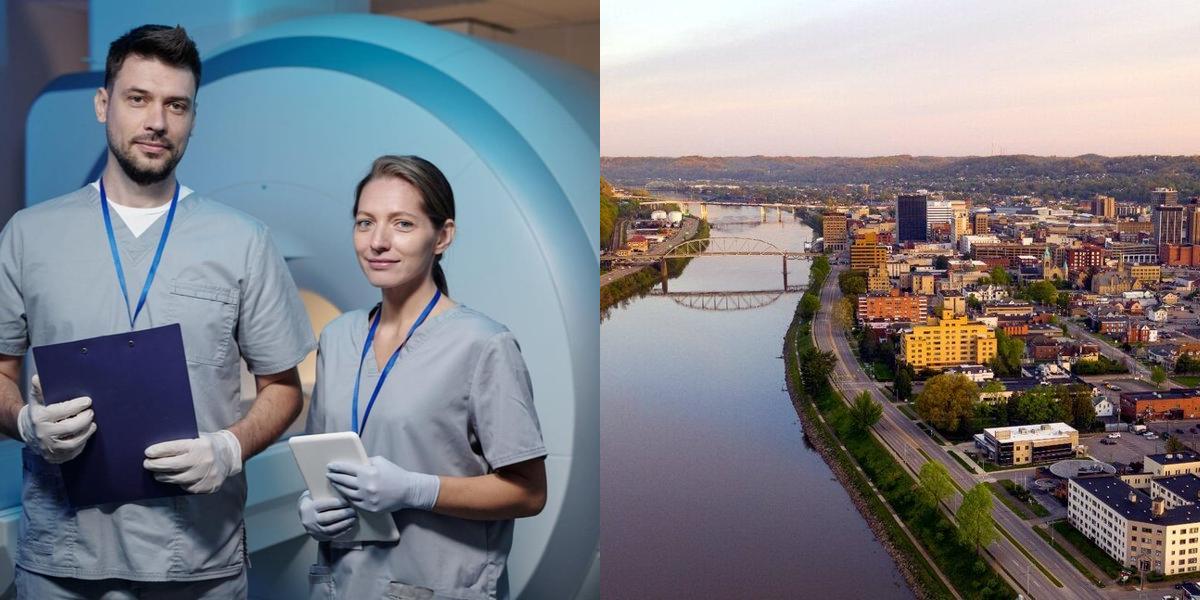How to Become a Radiology Technician in West Virginia

What is a Radiology Technician?
Radiology technicians, also known as radiographers, are healthcare professionals who use specialized equipment to create diagnostic images of the human body. Their primary responsibilities include:
- Positioning patients and operating imaging equipment such as X-rays, computed tomography (CT) scans, and magnetic resonance imaging (MRI) machines.
- Ensuring the safety of patients and themselves by following radiation safety protocols.
- Analyzing the images to check for quality and identifying any abnormalities.
- Providing patient care and education before, during, and after the imaging procedures.
Article continues after recommendations
Recommended for you
Where Does a Radiology Technician Work?
Radiology technicians typically work in hospitals, clinics, diagnostic imaging centers, and outpatient facilities. They may also work in specialized areas such as emergency rooms, operating rooms, or mobile imaging units.
How to Become a Radiology Technician in West Virginia?
To become a Radiology Technician in West Virginia, one must first complete an accredited Radiography program, which typically takes 2 years to earn an associate's degree. Next, they must pass the American Registry of Radiologic Technologists (ARRT) exam to obtain certification. Once certified, they can search for job opportunities in hospitals or imaging centers to start earning a competitive salary.
What are the Requirements to Become a Radiology Technician in West Virginia?
To become a radiology technician in West Virginia, you must meet the following requirements:
- Education: Complete an accredited radiologic technology program, which typically takes two years to complete and leads to an associate's degree.
- Licensure: Obtain a license to practice as a radiology technician in West Virginia. This involves passing the American Registry of Radiologic Technologists (ARRT) certification exam.
Exploring a Career in Radiology Technician Outside West Virginia
For those inspired to become a Radiology Technician but living in a different state, achieving your ambition is still very much a possibility. You could explore becoming a Radiology Technician in Florida, Georgia, Nebraska, Texas, or Wyoming. And if you're not near any of these, Dreambound is here to assist by offering an easy way to find and compare Radiology Technician classes by search by zip code. With the right mindset and resources like Dreambound, starting a career in healthcare is possible from any place.
How Do I Get My Radiology Technician Certification?
To get your radiology technician certification, you must:
- Graduate from an accredited radiologic technology program.
- Pass the ARRT certification exam, which covers topics such as patient care, radiation physics and protection, and image production and evaluation.
- Maintain your certification by completing continuing education credits and renewing your license every two years.
Get courses selected just for you
Try our powerful search engine
How Do I Get a Job as a Radiology Technician?
To get a job as a radiology technician in West Virginia, you can:
- Search for job postings on job boards, hospital and clinic websites, and professional organizations.
- Network with other healthcare professionals and attend industry events to make connections.
- Highlight your relevant education, certification, and any clinical experience you may have.
- Prepare for interviews by researching the employer and practicing common interview questions.
Career Paths and Opportunities after Becoming a Radiology Technician
After becoming a radiology technician, you can explore various career paths and opportunities, such as:
- Specializing in a particular imaging modality, such as CT, MRI, or mammography.
- Advancing to a supervisory or management role, such as a chief radiologic technologist.
- Pursuing further education to become a radiologist assistant or radiation therapist.
- Exploring opportunities in research, education, or sales and marketing of medical imaging equipment.
Final Thoughts
Becoming a radiology technician in West Virginia can be a rewarding and in-demand career path. By meeting the educational and licensing requirements, you can start a fulfilling career in the healthcare industry, with opportunities for growth and specialization. With the right skills, dedication, and passion for the field, you can make a meaningful impact on patient care.
If this article doesn't match what you're looking for, you can check out these other articles:

Athena is Co-founder and CEO of Dreambound.




